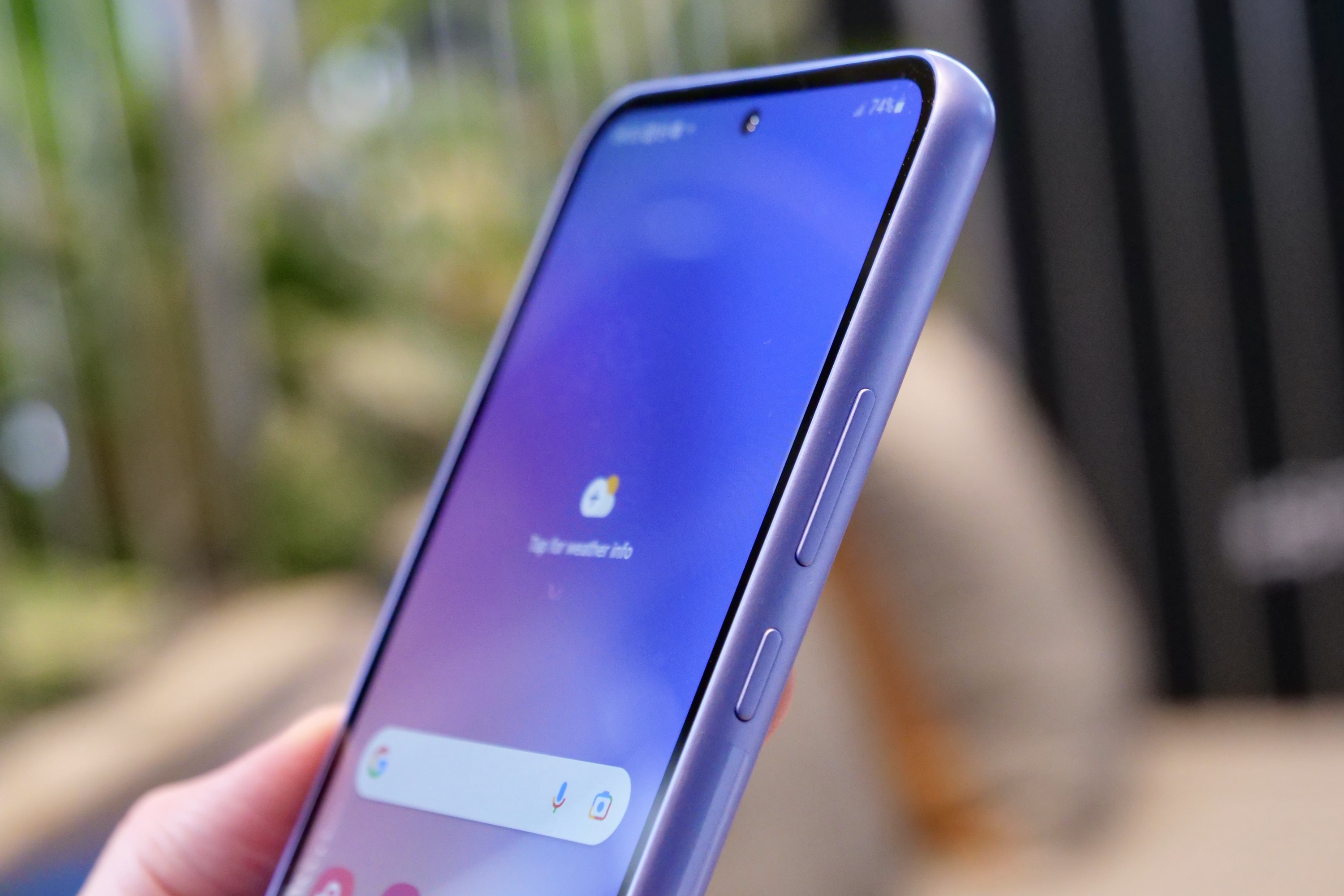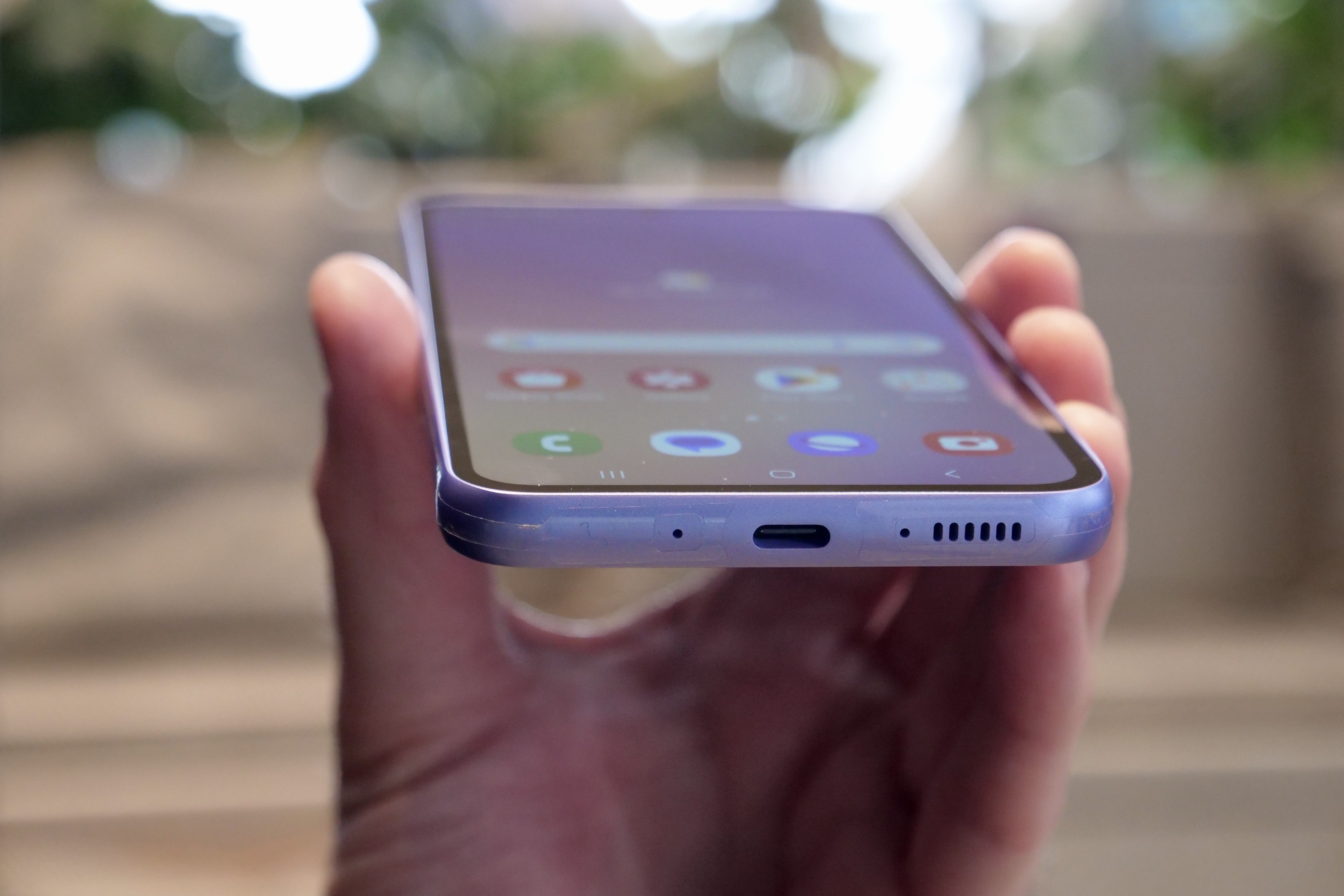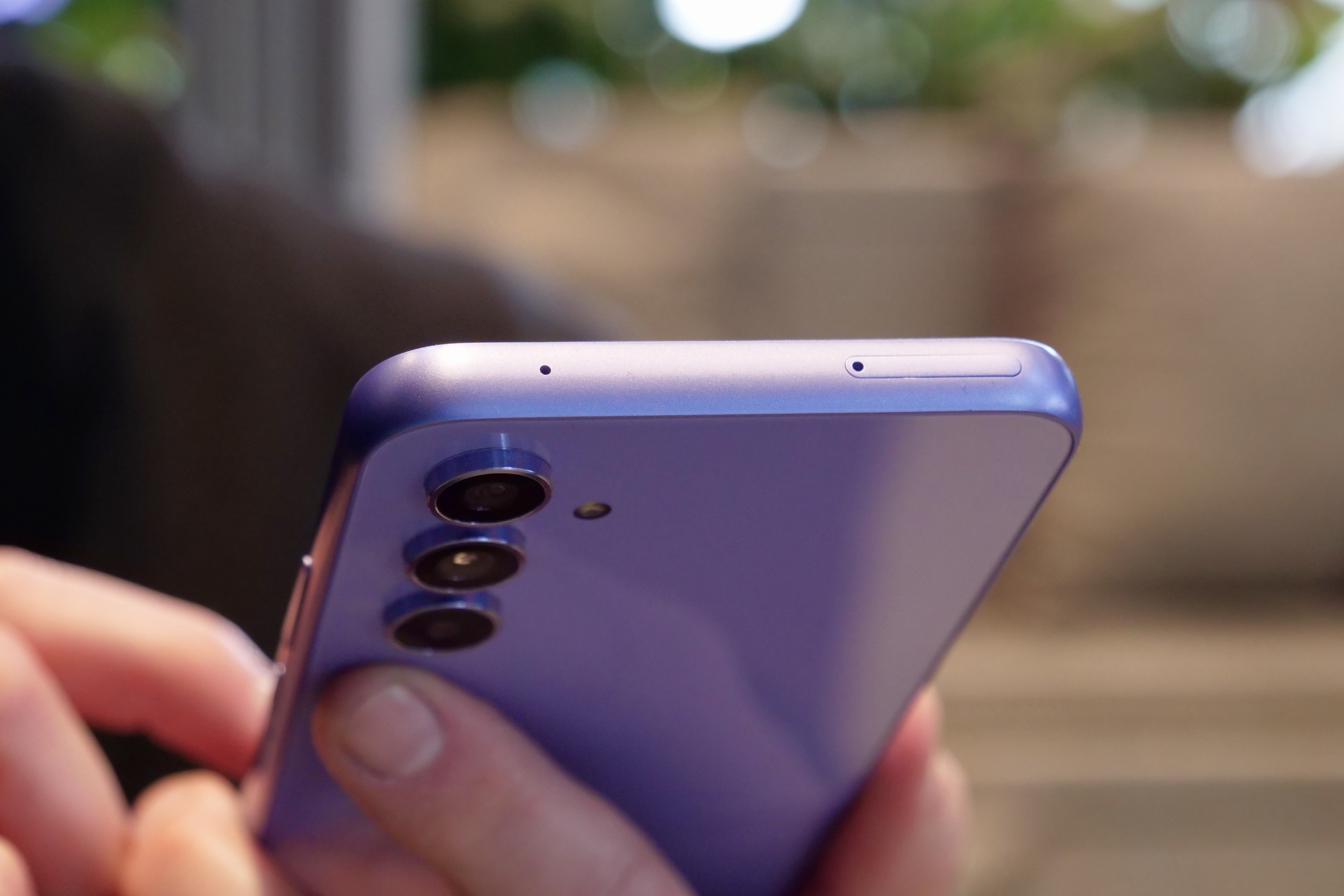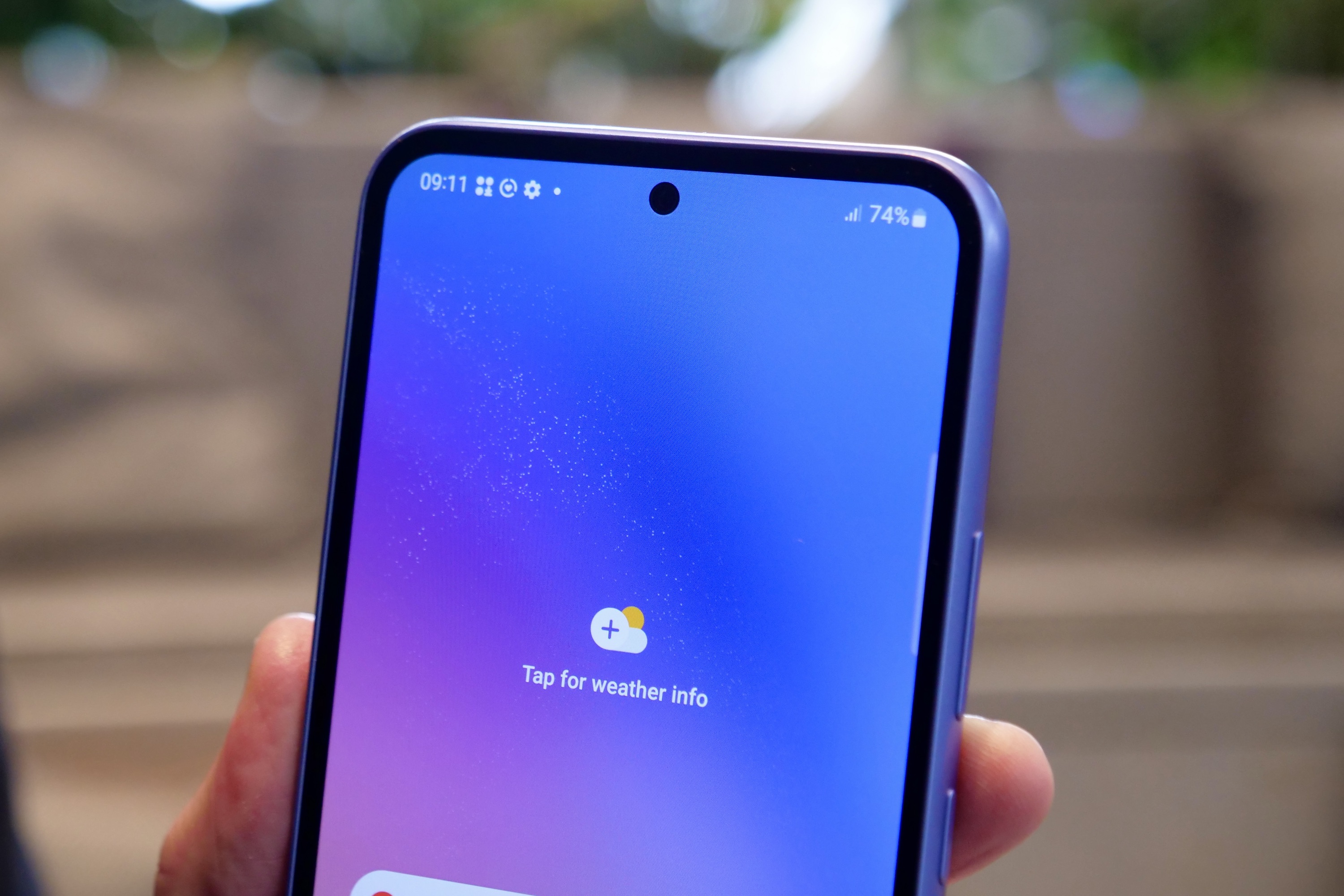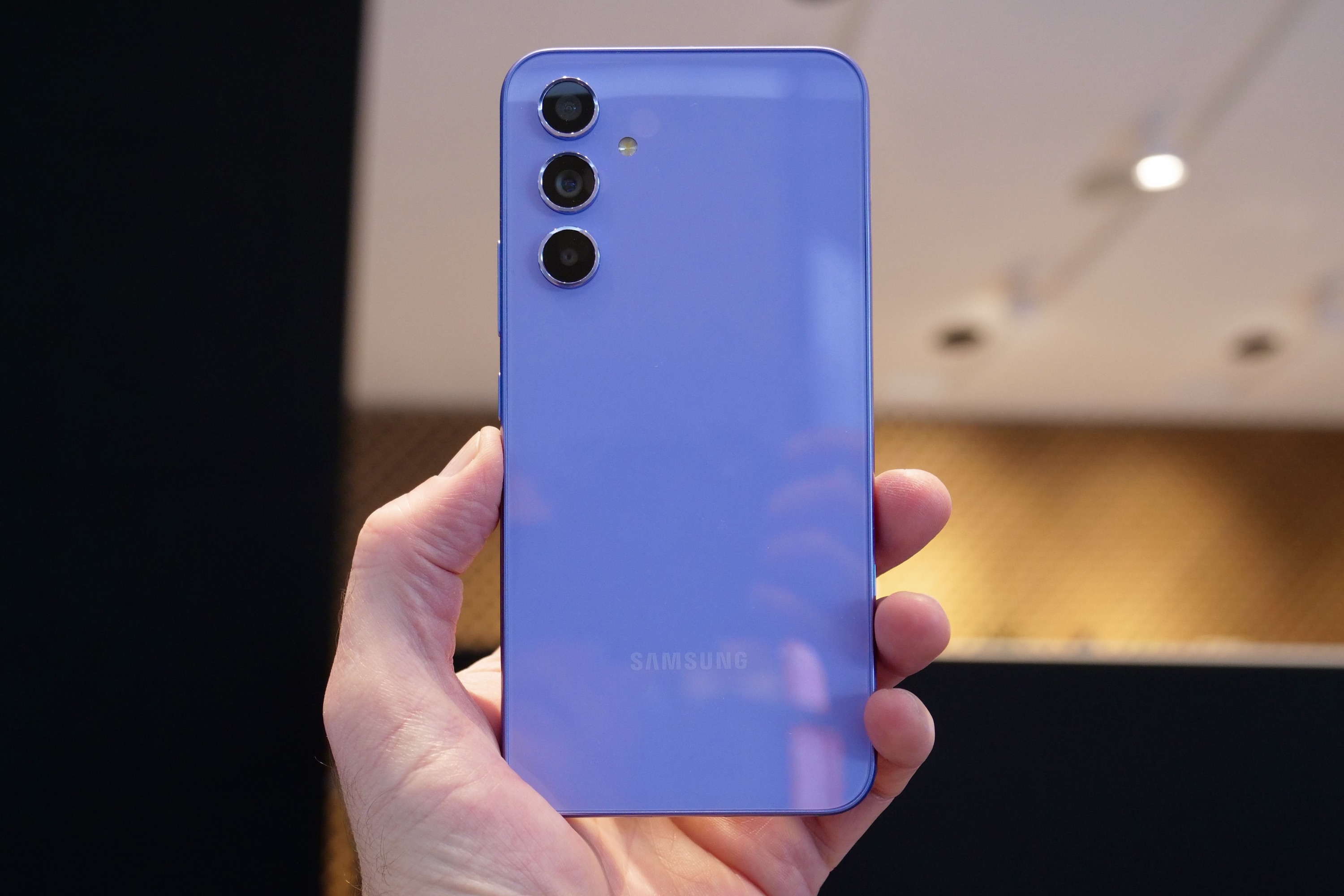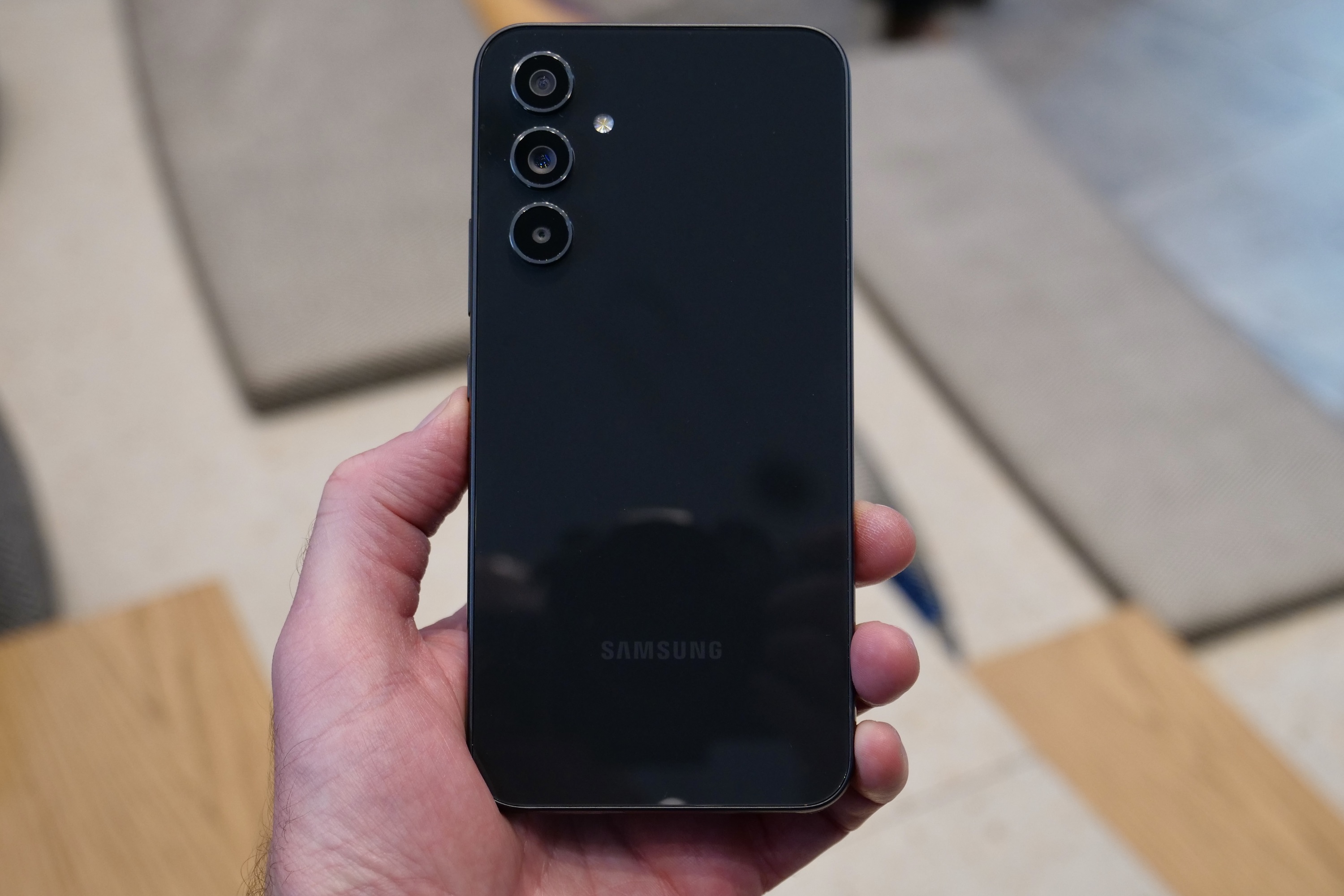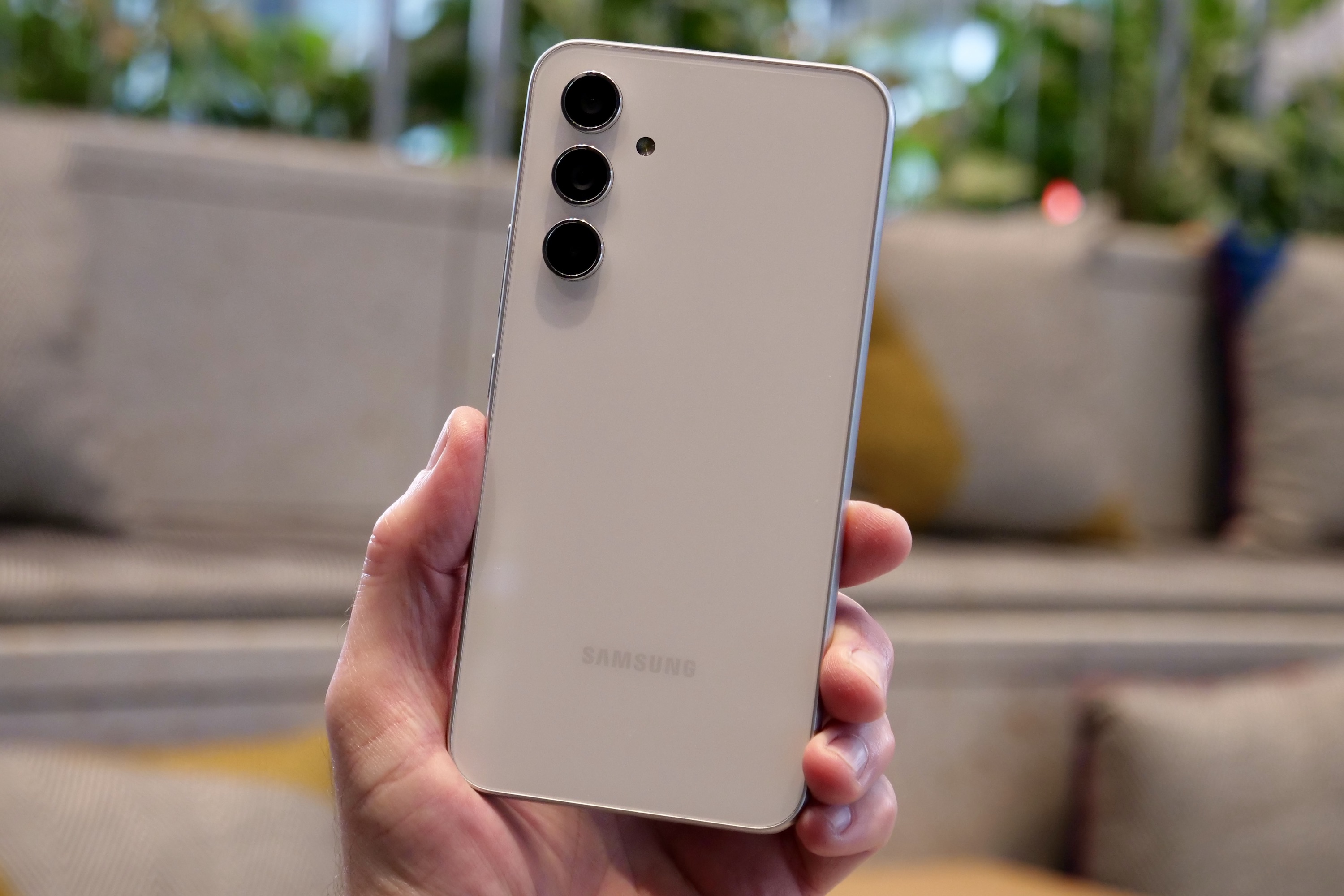-Samsung’s Galaxy A Series has long been a great choice for people who want Galaxy S Series style without the S Series price. The Galaxy A54 and Galaxy A34 are the latest, and Samsung isn’t being shy about giving these phones the latest flagship look.
Even better news is that the A54 continues to provide a great screen, long battery life, a decent camera, and solid everyday features you’ll love — all for a value-driven price. Could the new Galaxy A54 phone be 2023’s savviest smartphone buys? I tried it out for a short time to find out.
Getting the Awesome colors right

I’m going to concentrate my hands-on report on the Galaxy A54, but will explain more about the Galaxy A34 later on. The Galaxy A54 has a very similar look to the Galaxy S23, with three cameras on the back, each individually set in the Gorilla Glass 5 rear panel and surrounded by a decorative metal ring. The chassis is made of metal and plastic, which means Samsung could ditch the antenna bands for a cleaner look, and the screen is covered in Gorilla Glass 5.
It’s slim and compact at 8.2mm thick, despite the large 6.4-inch Super AMOLED screen, and it feels solid and expensive in your hand. The Galaxy A54 pulls off that neat trick of feeling a lot pricier than it is. The 202-gram weight sounds high, but it doesn’t feel heavy or bulky, so don’t let it put you off.

There are four color options, and they are all awesome. Not my word, but the word of Samsung’s marketing department. So on the awesome scale, how awesome are they? Well, the basic white and glossy black colors aren’t awesome at all, but the very cool Awesome Violet and the bright and really desirable Awesome Lime Green both score a 10 out of 10. I especially like the lime green version; it really pops in the right light, and my eye was immediately drawn to it over the ordinary white or black models.

The screen has a 120Hz refresh rate and a small, circular cutout for the 32-megapixel selfie camera in the top center, plus the maximum brightness has been increased to 1,000 nits. This is great news, as the Galaxy A53’s screen could struggle in harsh sunlight. It worked smoothly in my brief time with the phone, and as with many of Samsung’s screens, the colors and contrast levels are spot-on.
Quality materials, a high refresh rate screen that’s brighter than before, durability, and some great colors to choose between — I really like the way Galaxy A54 gets so many of the fundamentals right, without resorting to gimmicks or pointless features to attract people.
A new Exynos chip for power and efficiency

The camera setup has been upgraded from that used in the Galaxy A53, with a new 50MP main camera and optical image stabilization (OIS), a 12MP wide-angle camera, and a 5MP macro camera. An increase in pixel size means photos should be more vivid, and the A54 should perform better in lowlight too. I only spent a short time with the Galaxy A54 and snapped a few photos in isolation — I couldn’t compare them with another phone, and it was inside under fairly poor light — but they came out well. Most notably, the camera app was fast, without any lags or delays, and switching between modes was instantaneous.
You may think this would be a given, but the Galaxy A54 has Samsung’s latest Exynos 1380 processor inside, and this is the first time I’ve used a device with it. The Exynos hasn’t always been the best performer, and although taking a few photos and skimming through the operating system doesn’t put the phone through its paces, it was enough to make any early concerns disappear.
However, only by living with the phone will I know for sure what it’s like and how efficient it is. The Galaxy A54 has a 5,000mAh battery inside, and Samsung promises two days of life from it. This doesn’t seem like an excessive claim, considering batteries with the same capacity deliver this in other phones, so it’s reasonable to think it’ll meet the target. There’s a choice of either 128GB or 256GB storage space, plus there’s space for a MicroSD card too, with a maximum capacity of 1TB.
This is a 5G phone with 6GB or 8GB of RAM, plus it comes with Wi-Fi 6 connectivity and the option of using an eSIM over a standard SIM card. There’s a fingerprint sensor in the screen, which had decent speed when I tried it, an IP67 water resistance rating, and a 25-watt fast charging system for the battery.
Price and availability
The Samsung Galaxy A54 will be released in the U.S. on April 6 and will start at $450. You’ll be able to buy one through Samsung’s online store and carriers including AT&T, T-Mobile, Verizon, and U.S. Cellular. Preorders begin on March 30.
In the U.K., the Galaxy A54 will cost 499 British pounds for the top 256GB model, or 449 pounds for the 128GB version. If you buy the phone from Samsung between now and April 26, you will also get a free pair of Samsung Galaxy Buds 2 with the phone, making it an even better value.
What about the Galaxy A34?

Visually there’s not much difference between the Galaxy A54 and Galaxy A34, and the easiest way to tell them apart is to look at the selfie camera cutout on the screen. It’s a simple dot on the Galaxy A54 and a teardrop cutout on the Galaxy A34.
The 8.2mm thick, 199-gram phone has Gorilla Glass 5 over the screen, but the rear panel is made from a plastic material that Samsung calls “Glasstic” due to its texture being similar to glass. The screen has the same resolution and 120Hz refresh rate as the A54, but it’s a little bigger at 6.6 inches.

The Galaxy A54’s Exynos 1380 has been replaced by a MediaTek Dimensity 1080. While there are still three cameras on the back, the array contains a 48MP main camera with OIS, an 8MP wide-angle camera, and a 5MP macro camera. Like the Galaxy A54, it has a 5,000mAh battery, 25W charging, an IP67 rating, a MicroSD card slot to boost the 128GB or 256GB of internal storage space, either 6GB or 8GB of RAM, and an in-display fingerprint sensor.
Other features include a 13MP selfie camera, stereo speakers, the ability to make mobile payments using NFC, and 5G connectivity. The Galaxy A34 hasn’t been announced for the U.S., but in the U.K., the basic 128GB phone costs 349 British pounds, while the 256GB larger-capacity model is 399 pounds.
Galaxy S23 looks for less money

Even after only a short time with the Galaxy A54, it’s clear the phone has plenty going for it. The design is great, I love the two genuinely awesome colors, and the camera has potential. Crucially, the software is the same as you get on a Galaxy S23 and is therefore attractive, logical, and full of useful features without being overloaded. Plus, it’s covered by the same four-year major version and five-year security update promise.
It’s not a big upgrade over the Galaxy A53, at least technically, but small changes, like the brighter screen and bigger camera pixel size, may make a substantial difference in day-to-day use. The ultimate success of the phone will come down to the Exynos 1380’s performance, and if the battery can last for two days even with fairly heavy use, and if the new 50MP camera avoids the pitfalls of some Samsung cameras, such as oversaturation.

From what I’ve seen so far, the Galaxy A54 has all the potential to be a sensible, moneysaving purchase for those put off by the Galaxy S23’s higher price. There’s almost everything you need from a phone here, with that high level of Samsung polish, and at a price that takes on the Google Pixel 6a and the Nothing Phone 1. I’m looking forward to using it more.
